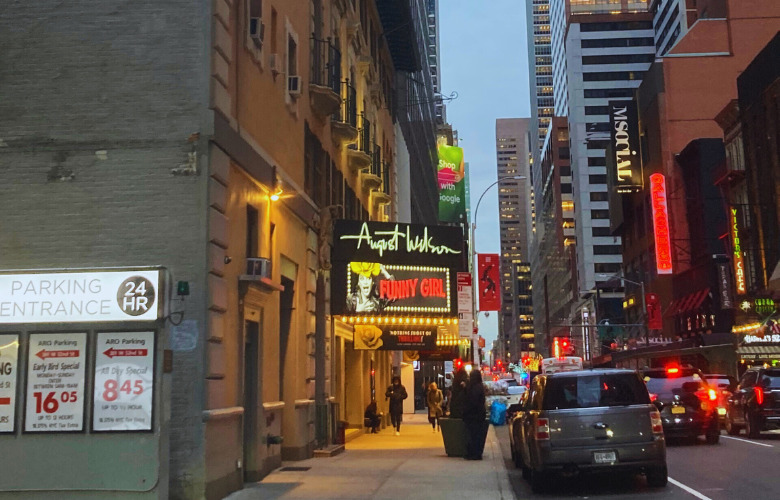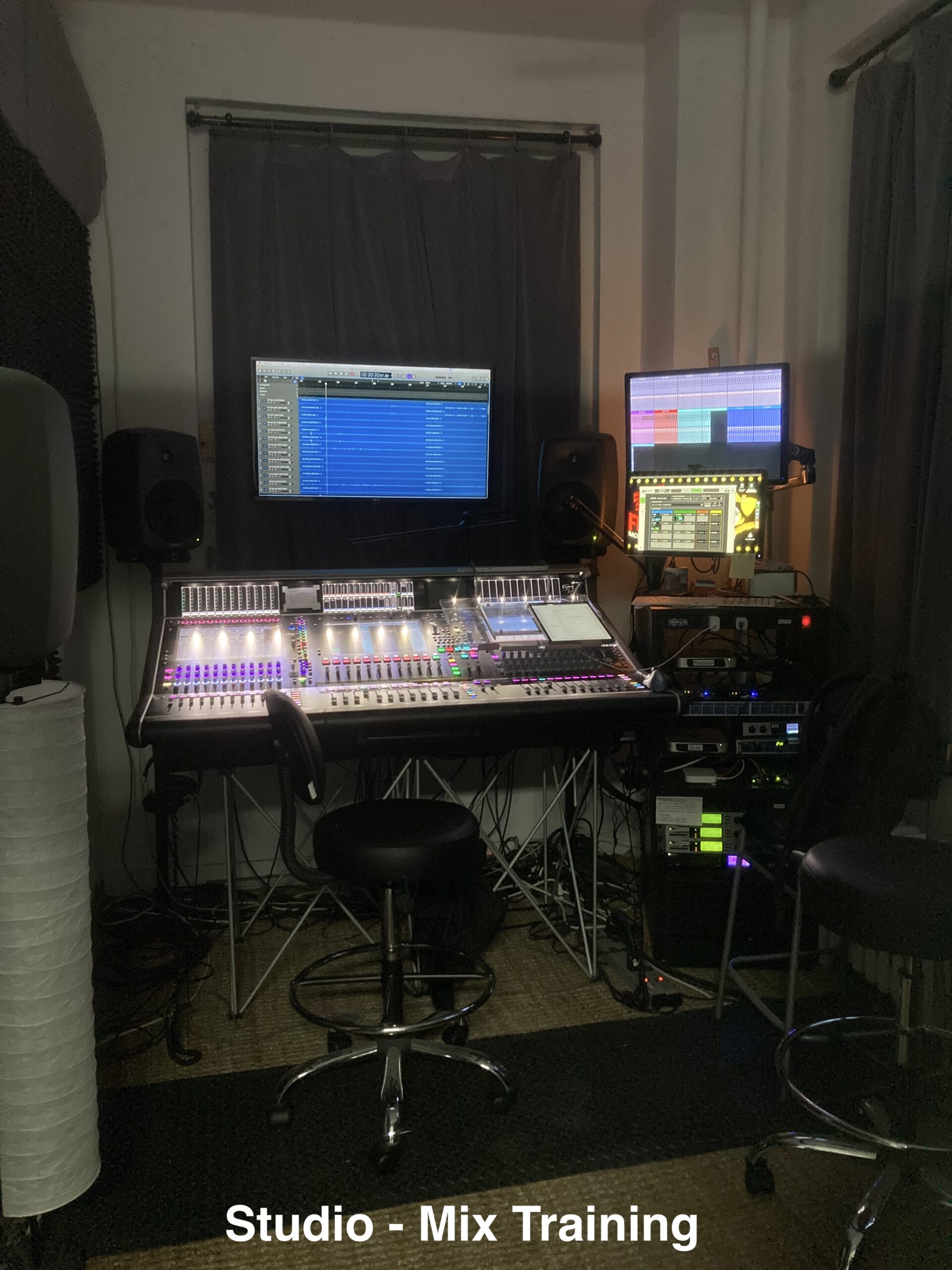
Moving anywhere usually signals a major life change. For many people who choose a career in theatre, moving to New York and working on Broadway is the starry-eyed dream and I was no exception. Even when I wanted to tour, the endgame was to save money, gain experience, and eventually get off the road to head to the city. The tour ended up being a larger part of my career than I originally expected, but when I was ready to leave, New York still felt like the next step.
Incidentally, shortly after graduating from college, I came to the city for the first time to work on a summer festival (NYMF, for anyone who remembers). I hoped I’d go on tour that fall but I was ready to move in and make a go of things in NYC if that didn’t pan out. Ten years later I was ready to make that move for real.
One of the best decisions I made was choosing to sublet with a roommate when I first arrived. In 2012 I had a two-month sublet for the duration of my contract. I figured I’d find something more permanent after if I was really going to live there. In 2023 I knew I was here for the long haul, so I agreed to a 6-month sublet to figure out work and scope out where I’d like to live when I was looking for my own apartment.
Subletting slowed down the pace of moving to the city because it meant I could spread out my major milestones over the first year in the city. I wasn’t throwing my things into storage as I ran all over the city apartment hunting while simultaneously trying to find work and attempting to acclimate to a huge life shift all at the same time. Instead, I got to move a couple of suitcases into a furnished, 2-bedroom apartment with a roommate (who was an actor friend from tour). She had moved to the city a couple of years earlier so, in addition to a significantly lower rent payment, I had a gracious support system where I talked her down from murdering her ring light while she was taping auditions and she became my in-house therapist as I figured out my life. Then, I could comfortably look for work for a few months and pick my friends and colleagues’ brains about brokers (expensive but worth it for someone who has no rental history), neighborhoods, and all the paperwork like paystubs (save or scan all of them!) and letters of employment (ask your company manager for one if you have steady work, ask your designer or associate if you don’t) before I had to start apartment hunting.
I was lucky to have a friend I got along with as a roommate, and if you’re able to find someone like that, I highly recommend sharing a living space, at least when you’re first moving in. They can be an incredible social support and financially speaking, it halves your biggest expense (rent). That gives you a cushion since your first few months will be spent establishing contacts and actual work may be sporadic.
To build your network: start letting people know you’re around and available. When I came here in 2012 I knew a couple of people from college, but that was pretty much it. Once NYMF started up I got to meet the other audio people on the crew as we worked in the shop and then other departments as we loaded into the theatres. Many of your colleagues become friends and all of them can be potential help for finding work, so each job you work expands both your social and professional circle one bit at a time.
In 2023, I have a fairly wide network: people I’ve toured with who’ve since moved to the city, designers I’ve worked with, and friends from NYC that I’ve kept in touch with and are still here (several from those early years on NYMF). However, as small as our industry is, I still know only a fraction of the people here.
So whether you’re starting out fresh or wanting to learn who’s around, the best option is to hustle.
Over the past few months, I’ve taken whatever work has come my way and each job has a non-financial benefit: subbing contributes to my healthcare eligibility, shop work lets me work around new or different gear and see how different designers and production people set up shows, and load ins and outs get me around to new theatres and rehearsal spaces I haven’t worked in before. On top of that, every job I’ve worked has introduced me to new people or reconnected me with old friends (usually both).
As a side note: I would recommend having a set of business cards. It doesn’t have to be anything fancy, mine simply has my name, mixer/audio engineer, my contact info, and a QR code to this blog as a fun add. They’re easy (and in some cases preferred) to hand to the head carpenter or head electrician of a Broadway house (these are the union crew that always work at that theatre and will head their department). That way, when it comes time to hire people for load-ins or outs, they have your info tucked away.
The next step after meeting people is to be a good worker. That means showing up on time, following directions, coming back to ask what’s next if you reach a stopping point, and asking questions if you need help. Notice I didn’t say you have to know everything. Honestly, if touring taught me nothing else, it’s that I would much rather work with someone who’s never done sound before but can follow directions over someone who’s seen it all, done it all, and wants to tell me how we should be doing things.
Everyone comes with a different level of training and skill and most good crew chiefs recognize that. I’d only built tours up until moving here, so when we were building Broadway sit-downs in the shop, I ended up doing things like adding adaptors to the wrong ends of extensions or wanting to put patch panels in a rack that didn’t actually need it. Once I realized there were enough small differences, I’d check with the production audio and laugh that my tour brain hadn’t shut off before they guided me to what they were actually looking for. Don’t be afraid to say that you don’t know what a piece of gear is or need some help with the signal flow of a rack. All production people have their own way of doing things and they know that. They’re there to answer questions and help you do your job building the show as efficiently as possible. For me, MIDI is something I always like to check on with the production audio to make sure I understand what they want. We’d all rather take 10 minutes to walk through something than backtrack later and spend half a day troubleshooting and fixing a bad signal path or incorrectly programmed piece of gear.

Honestly, I wish I’d been better about asking for help both when I was here in 2012 and now in 2023. That’s always been my weakest skill and it’s a vital part of living in this city and working in this industry. Whether it’s help getting work, advice on finding or setting up an apartment, or just bothering people to come and hang out for a bit, we all need our support systems. For the millions of people crammed onto this island, it can often feel lonely and isolating, especially when it’s all completely new. The people around you can provide guidance and direction when you need it most. All of them have been through similar times when they first got here and I’ve yet to meet anyone who isn’t willing to help.
(On tour there’s a difference between going “home” at night to your hotel or Airbnb and going “Home” to your own house, apartment, or family.) It’s the first time I’ve had a place that’s my own and sure, I miss having housekeeping to vacuum my rugs and wash my towels, but I’m slowly making it mine and each little touch makes me so happy. Growing pains and new stages of life aren’t supposed
to be painless, but they’re worth the adjustment.



The mission of SoundGirls.org is to inspire and empower the next generation of women in audio. Our mission is to create a supportive community for women in audio and music production, providing the tools, knowledge, and support to further their careers. SoundGirls.Org was formed in 2013 by veteran live sound engineers Karrie Keyes and Michelle Sabolchick Pettinato and operates under the Fiscal Sponsorship of The California Women’s Music Festival, a 501(c)3 non-profit organization. In 2012, Karrie and Michelle participated in the “Women of Professional Concert Sound” panel at the AES Conference in San Francisco. The panel was hosted by the Women’s Audio Mission (WAM) and moderated by WAM founder Terri Winston. Terri brought together five women working in live and broadcast audio. The groundbreaking panel (which also included Jeri Palumbo, Claudia Engelhart and Deanne Franklin), provided young women and men a glimpse into life on the road, tips and advice, and a Q & A with the panelists. More importantly though, was how incredibly powerful the experience was for the panelists. We had all been in the business for 20 years or more, yet most of us had never met before that day and within minutes we bonded like long-lost sisters. We were struck by how similar our experiences, work ethics, and passions were and wondered why our paths had never crossed and how our careers would have been different had we been there to support each other through the years. Each of us are strong on our own, but together we were even stronger and a powerful force. We were empowered. Each of us had been asked hundreds of times in our careers: Are there other women doing sound? How did you get into sound? How would a young woman go about getting into sound? Through creating SoundGirls.Org, we hope to establish a place for women working in professional audio to come for support and advice, to share our success and failures, our joys and frustrations, and for empowerment and inspiration.
Read Full Profile© 2021 TheatreArtLife. All rights reserved.

Thank you so much for reading, but you have now reached your free article limit for this month.
Our contributors are currently writing more articles for you to enjoy.
To keep reading, all you have to do is become a subscriber and then you can read unlimited articles anytime.
Your investment will help us continue to ignite connections across the globe in live entertainment and build this community for industry professionals.